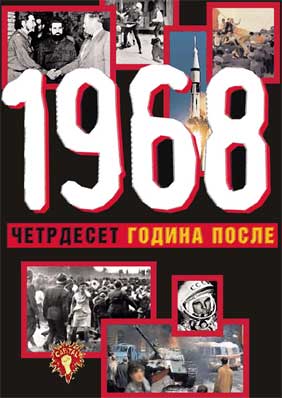1968. година – повратна за Източна Европа
The Year 1968 – The Turning-Point for Eastern Europe
Author(s): Iskra Baeva
Subject(s): Cultural history, Military history, Political history, Social history, Post-War period (1950 - 1989), Historical revisionism, Cold-War History
Published by: Institut za noviju istoriju Srbije
Summary/Abstract: The year 1968 was one of crisis, both for Eastern and Western Europe. There was a similarity in student-riots (in France, Germany, Poland, Czechoslovakia and Yugoslavia), but mutual differences were much greater. An attempt at revamping the social system which had been established after WWII under Soviet influence was made in Eastern Europe in 1968. The new leadership of the Czechoslovak Communist Party, headed by Alexander Dubček undertook a reform with the goal of making the state socialism more democratic, in order to weld social security with human rights („socialism with human face”).
In connection with reforms in the neighboring Czechoslovakia, Polish students stood up to protect intellectual freedoms. However, the government managed to stir up anti-intellectual and anti-Semitic sentiments and supress the dissatisfaction. Władisłav Gomułka came out against reforms.
The changes in Czechoslovakia – abolition of censorship, preparation of the Action program with the aim of making socialism more democratic, economic reforms of Oto Šik – led to troubles in the relations between the countries of the Eastern Bloc. At meetings in Dresden (March 23), Moscow (May 8) and Warsaw (July 14–15), the leaders of the Warsaw-Pact countries increasingly criticized Czechoslovak reforms and demanded increasingly more determined that they be rescinded. Finally the danger of a reformist spill-over led to the decision to intervene militarily in Czechoslovakia on August 21, 1968.
The military intervention changed the relations in Eastern Europe. Yu goslavia and Romania felt endangered and they reacted sharply. The suppression of the ”Prague Spring of ‘68” influenced mostly the attitudes of Eastern Europeans. They realized the preservation of the system and power was more important in the Eastern Bloc than the interests of the society.
Book: 1968 - четрдесет година после
- Page Range: 27-50
- Page Count: 24
- Publication Year: 2008
- Language: Russian
- Content File-PDF

